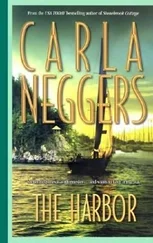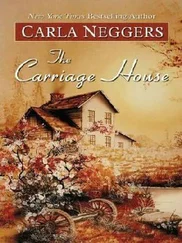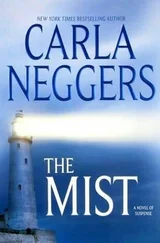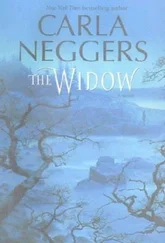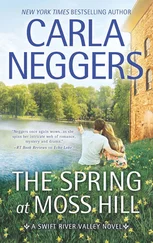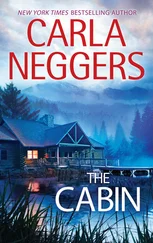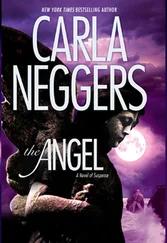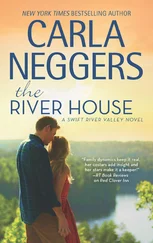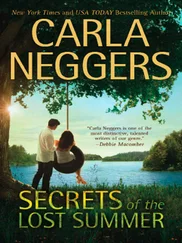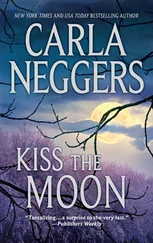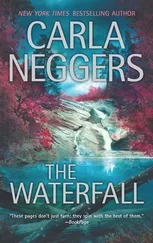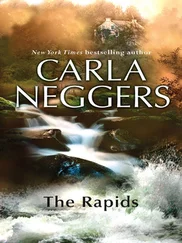It was a mess.
"I could have stopped her from coming over here," Scoop said half to himself.
"How?" Bob asked, skeptical.
"I could have cited police business."
"She's a Ph.D. She'd have seen right through you and come anyway."
"I could have taken her car keys and flung them down a drain."
Bob rubbed the back of his neck, looking less irritated and agitated. "You didn't let her come out here alone. That's one thing, anyway."
"Yeah, Bob. Sure."
"So, Scoop," he said, "was Rafferty on your radar? You've been working on something. You were before this. Before the bomb."
"If I'd had anything on Rafferty, I'd have arrested him. He wouldn't be dead."
Bob had been a police officer for a very long time, and his eyes showed his experience as he narrowed them on Scoop. "You were onto a cop connection to local thugs before Norman Estabrook set his sights on Abigail. Those bastards who grabbed her had someone on the inside. You had that in mind when you looked at the lists we compiled of people who'd been to the house in the days before the bomb went off."
"Any ongoing special investigation changed the minute that bomb exploded and we became personally involved."
Bob ignored him. "Cliff's name get your attention?"
"There were a lot of names on those lists. There was no evidence."
"There's evidence now."
Scoop felt the warmth of the sun on his bare head. His exposed scars might as well have been on fire. "Unless it was planted."
"Another cop, Scoop?"
"I've been walking the Scottish and Irish hills for the past month. You tell me."
Sophie turned, her skin grayish as her bright blue eyes focused on him and Bob. Scoop wondered how much she'd overheard. As obviously shaken and disturbed by Rafferty's death as she was, she'd maintained her composure, answering questions, keeping any theories to herself unless asked.
Bob crooked a finger at her, and she came over to them. Strands of her dark red hair fell in her face, but she didn't seem to notice. He said, "Tell me how you ended up here."
She motioned toward Rafferty's front door. "I told the detectives--"
"Tell me."
She debated a moment, then nodded. "All right."
Scoop kept quiet, watching and listening as she spoke. She was precise, detailed and objective in her description of events. He could picture her in front of a university classroom or at an archaeological excavation--smart, professional--but he could sense her underlying emotions. Shock, revulsion, fear--and just the slightest hint, again, not so much of lies and deception but of incompleteness.
She was leaving out something.
"The skulls," Bob said. "What do they mean?"
"I can only tell you what I know, in general, about their significance to prehistoric Celts. They believed the head was the source of a person's strength and power. Warriors would decapitate enemies in battle and string the heads on their belts and around the necks of their horses."
"Okay. What about nailing skulls to a door?"
"The same. Heads tacked to the entry of homes were a status symbol. There was probably a ritualistic, magical purpose. The scene upstairs seems to be an attempt to create a sacred space, with the skulls marking the border between the physical and the spiritual world."
"Why?"
She shook her head. "I don't know what whoever tacked up those skulls had in mind. The supernatural was an ever-present force in the lives of the Celts. They made little distinction between gods and ordinary humans, the living and the dead. Gods could become men and men become gods."
Bob scratched the side of his mouth for a second, digesting Sophie's explanation. "What about the disassembled gun in the pot?"
"The broken weapon of the warrior."
"A police officer," Scoop interjected.
Sophie glanced at him, and he saw the strain in her eyes. But she stayed focused as she turned back to Bob. "Placing the pieces of the gun in the pot could be the killer's way of symbolically appropriating the power of the owner."
"We don't know yet Cliff was killed," Bob said. "He was retired. He didn't have any power."
"He had a gun. He had decades of experience as a police officer. He was a private security guard for a wealthy couple."
"Fair enough. The glass beads?"
"Glass beads are often found in Celtic graves. Torcs are, too, but in this case, the broken torc could identify a vanquished enemy. Then there's the manner of death." She took a breath and looked out at the street, as if just needing to see something normal. "Hanging and strangulation were used in conducting ritualistic human sacrifice."
Bob glanced at Scoop, then back at Sophie. "Great," he said without enthusiasm.
"Human remains aren't my area of expertise, but remarkably intact corpses have been discovered in the bogs of Europe. The anaerobic conditions preserve organic material. As it happens, the Celts often made votive offerings in wet places. I have colleagues who specialize in peatland archaeology."
"So bogs were a natural choice to dump a body?" Bob made a face. "What, you've examined murder victims from 300 B.C.?"
She gave him a small smile. "Not me personally. We now know there was never a pan-European Celtic culture with a central government. The Celts were a collection of warring tribes who shared a similar culture and language. We have only limited understanding of the practices I'm describing. The Celts didn't leave us with a written record. Theirs was an oral tradition."
"What do you go on, then?"
"The archaeological record and descriptions of contemporary Classical writers."
"The Romans?"
She nodded. "Ireland was never conquered by Rome, but the Celts of mainland Europe and Great Britain were. Obviously they were enemies, which undoubtedly colors Roman perceptions of the Celts. We also have ancient epic pagan tales written down by Early Medieval Irish monks. They're an important source, but, of course, they're a mix of fantasy, mythology, legend--"
"And a lot of BS, too, probably. I get it," Bob said. "One of the crime lab technicians is a pagan. Nicest, happiest person you'd ever want to meet."
"What I just witnessed has nothing to do with modern pagans or Celtic revivalists."
Bob nodded. "I get your point."
"Am I free to leave?" Sophie asked.
"Yeah, go on. We'll find you if we have more questions."
She glanced at Scoop, then headed straight for her car.
"Hell, Scoop," Bob said on a breath. "That's one creepy scene up there. So what were you thinking, coming out here with her?"
"I wasn't thinking I'd find Rafferty dead."
Just as Sophie reached the street, a car screeched to a stop. Frank Acosta, a robbery detective and Rafferty's former partner, jumped out, ducked under the crime-scene tape and charged in front of her, blocking her path to her sister's Mini.
"I figured he'd show up," Bob muttered next to Scoop.
In his late thirties, Acosta was known as one of the better-looking detectives in the department with his dark hair, dark eyes and what Abigail, an otherwise hard-driving, sensible woman, had tried to explain to both Bob and Scoop was a crooked, sexy smile. She'd never had any interest in Acosta, she'd said. She was just explaining.
That was last spring, when Frank Acosta had come to the attention of internal affairs for sexual indiscretions. He had treaded the line but hadn't crossed it, and he'd been warned to clean up his act. But he was no fan of internal affairs.
He was clearly emotional as he inserted himself between Sophie and her car. "You're the archaeologist who found Cliff?" He choked out the words. "What happened? I just saw him yesterday afternoon. We had coffee. He was fine."
"Hold on, Frank," Bob called to him.
Acosta pretended not to hear him. "Then you show up, and now he's dead."
Читать дальше
Конец ознакомительного отрывка
Купить книгу

